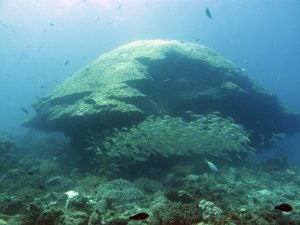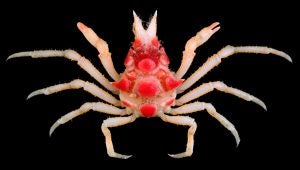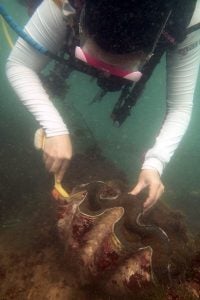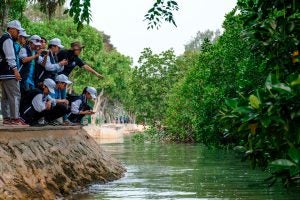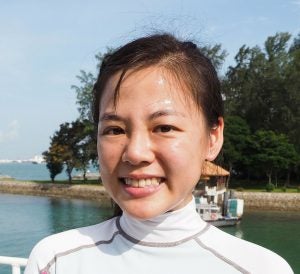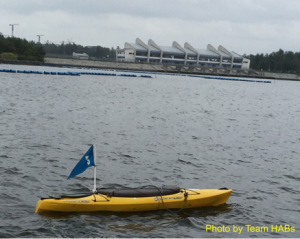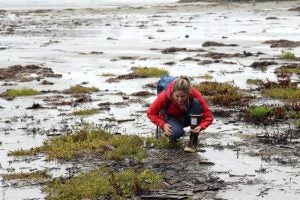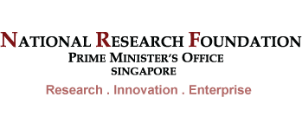Outreach
Highlights
[News] Coral reefs in Singapore could have been growing for 7,000 years
In celebration of World Oceans Day (8 June), Senior Research Fellow Dr Jani Tanzil has been interviewed as part of an article on coral reef research in Singapore. She was […]
Read More[Seminar] The Majoidea of Singapore and the revision of the epialtid genus
Seminar by Dr Lee Bee Yan,Research Fellow at St John’s Island National Marine Laboratory Date: Friday, 20 March 2020Time: 3 – 4pmVenue: SJINML Seminar Room Abstract: The taxonomy of Singapore […]
Read More[Seminar] A Mouse is a Worm
Borneo Marine Research Institute (BMRI) is one of three research institutes in Universiti Malaysia Sabah (UMS). It is strategically located along the shoreline of Sepangar Bay, Kota Kinabalu, providing easy access to the sea and surrounding habitats. The institute conduct marine and aquaculture research and offer postgraduate degree programmes. Undergraduate teaching of two programmes, marine science and aquaculture is conducted on behalf of Faculty of Science and Natural Resource. Facilities in the institute includes fish and invertebrate hatcheries, marine aquarium and museum, as well as boathouse and jetty.
Read More[News] STEP Environment Camp 2019
From 10 November 2019 to 16 November 2019, our SJINML Outreach and Education team hosted youths from Asia at the STEP Environment Camp 2019. This year, we had 92 participants from Brunei, Cambodia, China, India, Indonesia, Laos, Myanmar, Malaysia, Philippines, Singapore, Thailand, and Vietnam participating in various activities to learn about ‘Zero Waste’ in a week-long camp. Students had the opportunities to interact with leading researchers working in areas of marine plastic pollution, engineering of aerogels, and circular economy, as well as hands-on field work within Singapore’s unique habitats to investigate the impacts of marine debris.
Read More[Seminar] A Brief Introduction to Borneo Marine Research Institute and Coral Reef Research in Sabah
Borneo Marine Research Institute (BMRI) is one of three research institutes in Universiti Malaysia Sabah (UMS). It is strategically located along the shoreline of Sepangar Bay, Kota Kinabalu, providing easy access to the sea and surrounding habitats. The institute conduct marine and aquaculture research and offer postgraduate degree programmes. Undergraduate teaching of two programmes, marine science and aquaculture is conducted on behalf of Faculty of Science and Natural Resource. Facilities in the institute includes fish and invertebrate hatcheries, marine aquarium and museum, as well as boathouse and jetty.
Read More[News] Queen of the Deep
Dr Neo Mei Lin, a Research Fellow from St John’s Island National Marine Laboratory and the Tropical Marine Science Institute, was recently featured in the National University of Singapore’s The Alumnus magazine!
Read More[Fireside Chat] Can Plastics to Fuel Technology Resolve the Plastic Waste Problem?
Of the 300 over million tonnes of plastics produced each year, less than 10 percent gets recycled. What happens to the rest? Some get sent to landfills where, when left to degrade, can leach harmful chemicals that spread into groundwater. Some are washed out through rivers into the oceans where they break down into microplastics that today is found in everything we eat and drink.
Read More[Seminar] What if? How Asian coastal cities might embrace climate reality
Seminar by Ed GillespieIn conjunction with the British High Commission of Singapore Date: Wednesday, 25 September 2019Time: 4.30pm – 6.30pmVenue: CREATE Auditorium, 1 Create Way, CREATE Tower, National University of […]
Read More[News] The Double Whammy Of Microplastics In The Oceans
Researchers from St John’s Island National Marine Lab and the Tropical Marine Science Institute, Dr Sandric Leong and Ms Emily Curren are in the news once again for their research! The full story can be found here: https://www.asianscientist.com/2019/02/in-the-lab/toxic-bacteria-microplastics-ocean-pollution/.
Read More

